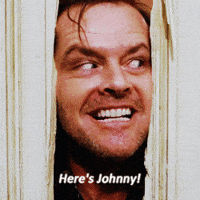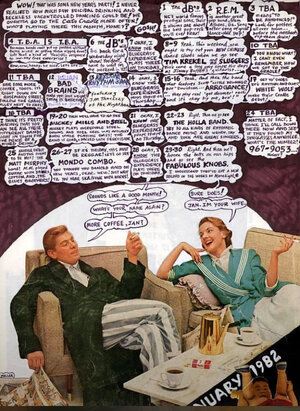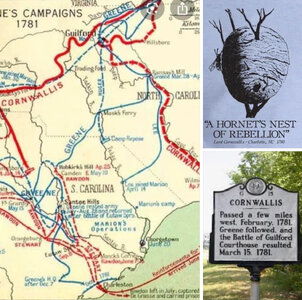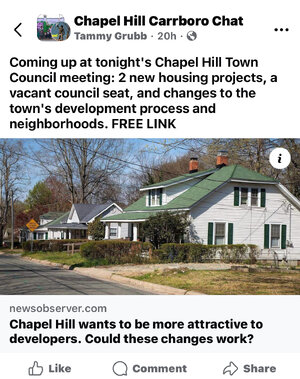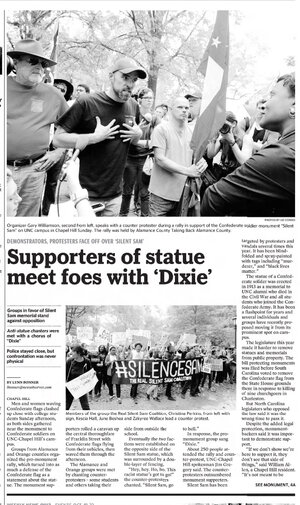Navigation
Install the app
How to install the app on iOS
Follow along with the video below to see how to install our site as a web app on your home screen.
Note: This feature may not be available in some browsers.
More options
You are using an out of date browser. It may not display this or other websites correctly.
You should upgrade or use an alternative browser.
You should upgrade or use an alternative browser.
RIP Clyde A. Hutchison III, UNC Geneticist of Reknown: Chapel Hill, Carrboro, & UNC
- Thread starter donbosco
- Start date
- Replies: 914
- Views: 39K
- Off-Topic
donbosco
Inconceivable Member
- Messages
- 4,728
Bit of a detour.
And North Carolina was a “Hornet’s Nest.” I was taught that General Charles Cornwallis gave the colony, most specifically Charlotte, that label after he and his troops spent the fall of 1780 in the area during which time they were relentlessly harassed, waylaid, and attacked by local folk. I have always felt a comfortable distaste for the Lord General Cornwallis (he bore the titles of Marquess, Viscount, and Earl) rooted in historic pride in the rejection of authoritarians - i.e., the kings and queens that marked the founding of this country. The egalitarian impulse that rebellion embodied seemed quite well placed when the enemy commander bore such haughty appellations.
Accompanying that deeply ingrained allegiance to the constitutional democratic republic born out of that rebuff of aristocratic rule came a puzzlement though…why were so many thoroughfares and byways across the state named for the snobbish aristocrat turned invading general? I must have seen Cornwallis St. in Pittsboro but the one that made the most profound impression on me was certainly Cornwallis Drive in Greensboro. That the Gate City was garnished with War for Independence remembrances was understandable - once one gets past the missing ‘e’ in the town’s name, it is, after all, named for the American General, Nathanael Greene — Greensboroites and their neighbors had dealt a hurtful blow, before a humble retreat, (The Battle of Guilford Courthouse) against Cornwallis as he made his marauding way through Piedmont North Carolina.
Aside from Pittsboro and Greensboro, Gastonia, Winston-Salem, Riegelwood, Rose Hill, Burlington, Mocksville, and Charlotte each have some type of road dedicated to the enemy. Once I moved to Chapel Hill the key artery binding Orange and Durham counties — Cornwallis Road — became the way to, or around, a great many things and places. (Tip o’ the Hat to D.G. Martin who has written about this here: https://www.chathamjournal.com/week...places-named-after-enemy-generals-70510.shtml)
I’ve mentioned that since a boy I have been a habitual reader of North Carolina’s Historical Markers (NC Highway Historical Marker Program | NC DNCR) - our state’s beloved “History on a Stick” has hardly slighted Lord Cornwallis. Of the over 1,600 markers at least 68 mention the Lord General either on the plaque or in the longer explanatory text at the website. I have a hunch that no other person can claim such a historical presence on the byways of North Carolina.
Maybe that’s why we remember him - he came as an invader and Tar Heels showed him the road. We’re always good to invite folks to visit after all but we’re mighty irritated when they overstay that call. “The art of being a good guest is knowing when to leave.”
Lord Cornwallis ultimately fled the “Hornet’s Nest” of Carolina fairly well roughed up and dispirited. In Virginia he met his downfall.
#OTD in 1781 General Lord Cornwallis surrendered at Yorktown. The treatment of the British in the Carolinas by #NathanaelGreene/#DanielMorgan (Cowan’s Ford, #GuilfordCourthouse ex.) was harsh and the weight of fighting a war on foreign, contested soil bore down on the colonizing invaders. A Regional Patriot/Loyalist Civil War would continue for some months but Yorktown was the beginning of the end of British Imperial hegemony over the 13 colonies. The Road to Yorktown via the North Carolina Piedmont
We remember the vanquishing of The King’s Main Minion #OTD in 1781.
donbosco
Inconceivable Member
- Messages
- 4,728
- Messages
- 1,639
Some of the filming for "The Shining" was done at the Timberland Lodge on the slopes of Mt. Hood in Oregon. Once when we were staying there, I asked the Concierge about Room 217. She replied that one of the conditions the Timberland Lodge insisted upon to allow the filming to occur was that the "bad" room had to be changed from Room 217 (of which there was one in the Lodge) to Room 237 (of which there was not one in the Lodge.) The folks at the Timberland Lodge were afraid that they would never be able to rent Room 217 if that number was used in the movie. The Concierge the laughed and said that Room 217 is constantly requested and is booked up, in advance, on Halloween night for at least 20 years.
The Blazers? That's Shaking Sherman and Lee Gildersleeve.
Which one is Lee?
donbosco
Inconceivable Member
- Messages
- 4,728
Right-Facing.Which one is Lee?
donbosco
Inconceivable Member
- Messages
- 4,728
‘The Sun’ 1980, “Chapel Hill: An Elegy For Jesse Strowd,” With Jeff’s Confectionary, Dean Smith, Bill Friday, The Carolina Inn, Jim “Shoe” Shumaker, and Church Street, by Owen H. Page: Link to the article here: Chapel Hill
donbosco
Inconceivable Member
- Messages
- 4,728
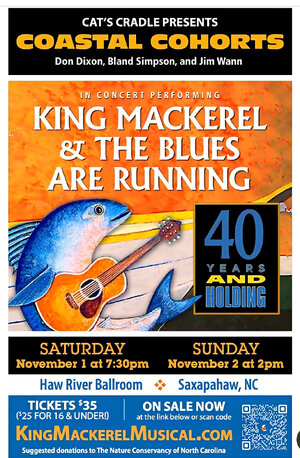
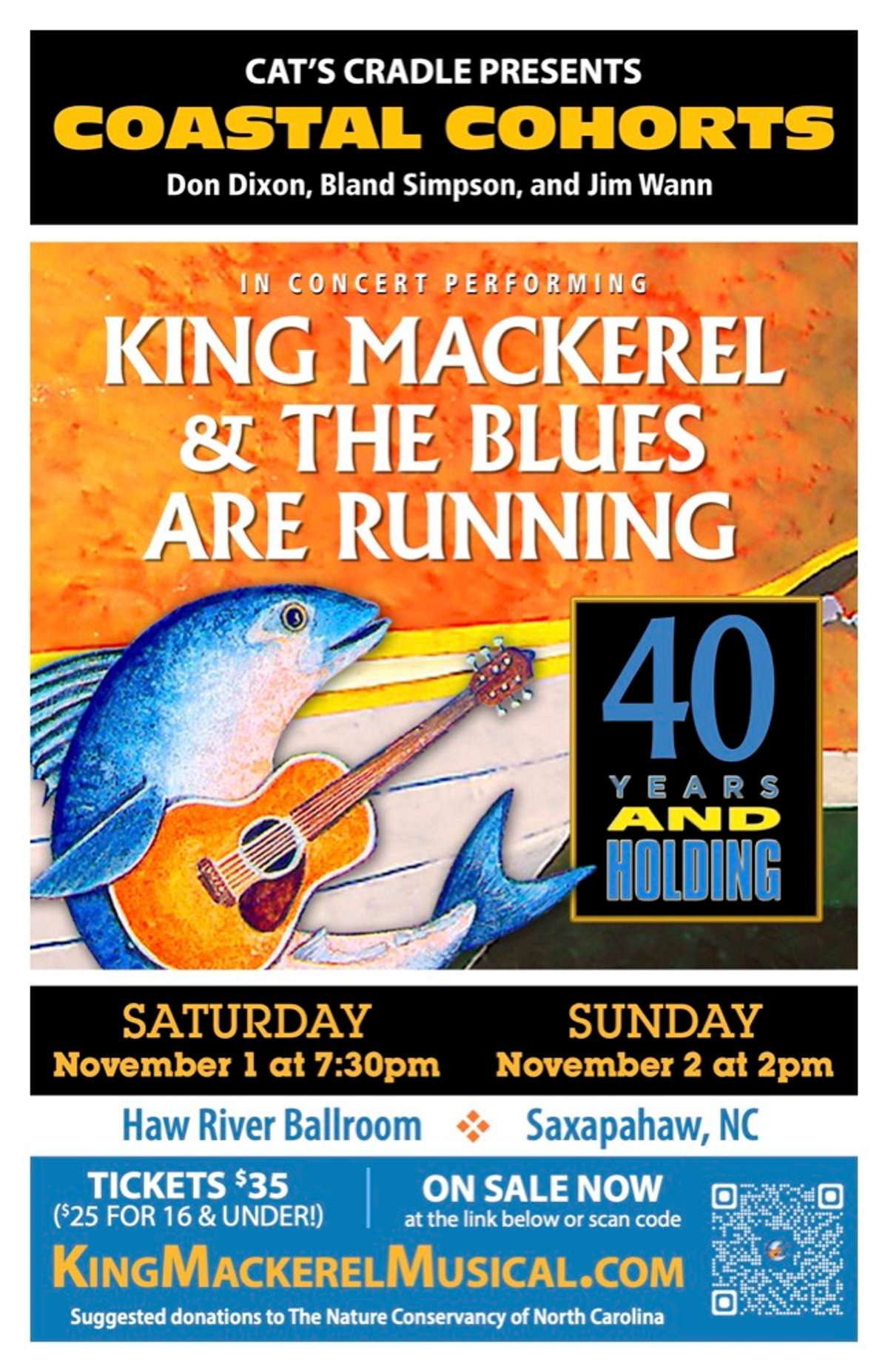
King Mackerel & the Blues are Running | Cat's Cradle
This is a seated show The musicalKing Mackerel & The Blues Are Running is a long-running and beloved theatrical performance of music and stories about fishing and life along the Carolina coastline. Called “a pure salt watered delight” by the late Clive Barnes, New York Post theater critic, King...
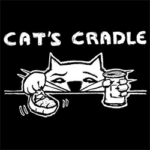 catscradle.com
catscradle.com
donbosco
Inconceivable Member
- Messages
- 4,728
The passing of Clyde A. Hutchison, III
“Both involve a lot of strict thinking, where you have to follow the rules. And they both then involve the necessity to have some loose thinking, where you’re not concerned with the rules. I think of jazz as kind of a rebellion against the man. So you have this song that has a set harmonic progression and a melody, and the music’s kind of a theme in variations. But then you start improvising on the harmonic and melodic content of the song, and you may get fairly far away from the original thing.” — That’s the answer given by Dr. Clyde A Hutchison III when asked, “How is cracking a genome similar to cracking a Duke Ellington piece?” (2019 interview, ‘La Jolla (CA) Light’)
Once when walking across the UNC campus in the 1990s I ran into Clyde. He was deep in thought and I had to hail him from his profundity. “Yo Clyde! What are you thinking so hard about?” He replied, smiling wryly, “Creating life. See you at the Bistro.” And off he went. He was talking about ‘Henry’s Bistro’ where I worked. And he was serious about the creating Life thing. Clyde often played piano in a trio that went by ‘Hutchison, Hoole, and Price.’ (Hoole being Brunson, and Price being Paul) I very much looked forward to working nights when that collection of friends played. Looking back the utter sublimeness of those evening hours in that place and time - that world - wells up inside me as simple, burning joy.
I’m recollecting these things with sadness because another super-musician friend, Groves Willer, messaged me yesterday with the news that Clyde had passed on. Back in the ‘80s and ‘90s Clyde was a jazz man about town. He was a little older than us restaurant bar scene folks - he clearly had a good job and if you talked to him much you could perceive a mildly veiled professor vibe - but he fit in to the general eclecticism of those times rather seamlessly. He wasn’t at The Late Nights nor throwing back PBRs mind you but his presence also wasn’t incongruous in “the club” whichever one that might be.
As a extra-curious bartender I ‘discovered’ Clyde’s secret but mainly kept it. I wasn’t the least bit surprised, only bemused, when he made his “creating life” quip - because the truth was - that was his “other gig.” You see, Clyde A. Hutchison III was the co-inventor of something called ‘site-directed mutagenesis’ — the first technique designed to intentionally alter DNA at a specific location (i.e., site) — literally making modern genetic engineering possible. The Nobel Prize in Chemistry (1993) was awarded to Michael Smith for developing site-directed mutagenesis — work that Hutchison co-led and co-authored (Clyde got shafted on that but by all accounts never griped about it - clearly the Science World knew of his work and celebrated him).
Clyde played regularly at ‘Henry’s Bistro’ but also at ‘Columbia Street Bakery,’ ‘Irregardless Cafe’ (in Durham), and in the subterranean confines of ‘The Cave.’ I can’t find any evidence of it but I swear I remember him playing at ‘The Hardback Cafe’ too - He was a familiar face there and where I met him. I remember something about his negotiating actual dollar payment for the trio instead of beer and food (Hoole and Price seemed content to eat and drink their earnings away). Those shows wherever they went down were masterful jazz exhibitions put on by three brilliant minds at their instruments - the brainpower collected there was so indicative of Life in Chapel Hill - where your wait is a translator of ancient indigenous astro-meteorological texts, your chef a published novelist, the cashier ringing you up an editor at a publishing house, and your piano man a trailblazing world-renowned geneticist.
Clyde departed Chapel Hill in the early 2000s, heading to California to continue unlocking the secrets of life. It’s always made me glad to know that he continued playing ‘out there’ with regular sets at a place called ‘Manhattan of La Jolla.’
Clyde was 86. Above is an obit that a friend in California worked up for his passing. Maybe Clyde has all the answers about genetics now but I’d bet his first stop in The Hereafter was at The Jazz Bar.
“Both involve a lot of strict thinking, where you have to follow the rules. And they both then involve the necessity to have some loose thinking, where you’re not concerned with the rules. I think of jazz as kind of a rebellion against the man. So you have this song that has a set harmonic progression and a melody, and the music’s kind of a theme in variations. But then you start improvising on the harmonic and melodic content of the song, and you may get fairly far away from the original thing.” — That’s the answer given by Dr. Clyde A Hutchison III when asked, “How is cracking a genome similar to cracking a Duke Ellington piece?” (2019 interview, ‘La Jolla (CA) Light’)
Once when walking across the UNC campus in the 1990s I ran into Clyde. He was deep in thought and I had to hail him from his profundity. “Yo Clyde! What are you thinking so hard about?” He replied, smiling wryly, “Creating life. See you at the Bistro.” And off he went. He was talking about ‘Henry’s Bistro’ where I worked. And he was serious about the creating Life thing. Clyde often played piano in a trio that went by ‘Hutchison, Hoole, and Price.’ (Hoole being Brunson, and Price being Paul) I very much looked forward to working nights when that collection of friends played. Looking back the utter sublimeness of those evening hours in that place and time - that world - wells up inside me as simple, burning joy.
I’m recollecting these things with sadness because another super-musician friend, Groves Willer, messaged me yesterday with the news that Clyde had passed on. Back in the ‘80s and ‘90s Clyde was a jazz man about town. He was a little older than us restaurant bar scene folks - he clearly had a good job and if you talked to him much you could perceive a mildly veiled professor vibe - but he fit in to the general eclecticism of those times rather seamlessly. He wasn’t at The Late Nights nor throwing back PBRs mind you but his presence also wasn’t incongruous in “the club” whichever one that might be.
As a extra-curious bartender I ‘discovered’ Clyde’s secret but mainly kept it. I wasn’t the least bit surprised, only bemused, when he made his “creating life” quip - because the truth was - that was his “other gig.” You see, Clyde A. Hutchison III was the co-inventor of something called ‘site-directed mutagenesis’ — the first technique designed to intentionally alter DNA at a specific location (i.e., site) — literally making modern genetic engineering possible. The Nobel Prize in Chemistry (1993) was awarded to Michael Smith for developing site-directed mutagenesis — work that Hutchison co-led and co-authored (Clyde got shafted on that but by all accounts never griped about it - clearly the Science World knew of his work and celebrated him).
Clyde played regularly at ‘Henry’s Bistro’ but also at ‘Columbia Street Bakery,’ ‘Irregardless Cafe’ (in Durham), and in the subterranean confines of ‘The Cave.’ I can’t find any evidence of it but I swear I remember him playing at ‘The Hardback Cafe’ too - He was a familiar face there and where I met him. I remember something about his negotiating actual dollar payment for the trio instead of beer and food (Hoole and Price seemed content to eat and drink their earnings away). Those shows wherever they went down were masterful jazz exhibitions put on by three brilliant minds at their instruments - the brainpower collected there was so indicative of Life in Chapel Hill - where your wait is a translator of ancient indigenous astro-meteorological texts, your chef a published novelist, the cashier ringing you up an editor at a publishing house, and your piano man a trailblazing world-renowned geneticist.
Clyde departed Chapel Hill in the early 2000s, heading to California to continue unlocking the secrets of life. It’s always made me glad to know that he continued playing ‘out there’ with regular sets at a place called ‘Manhattan of La Jolla.’
Clyde was 86. Above is an obit that a friend in California worked up for his passing. Maybe Clyde has all the answers about genetics now but I’d bet his first stop in The Hereafter was at The Jazz Bar.
donbosco
Inconceivable Member
- Messages
- 4,728
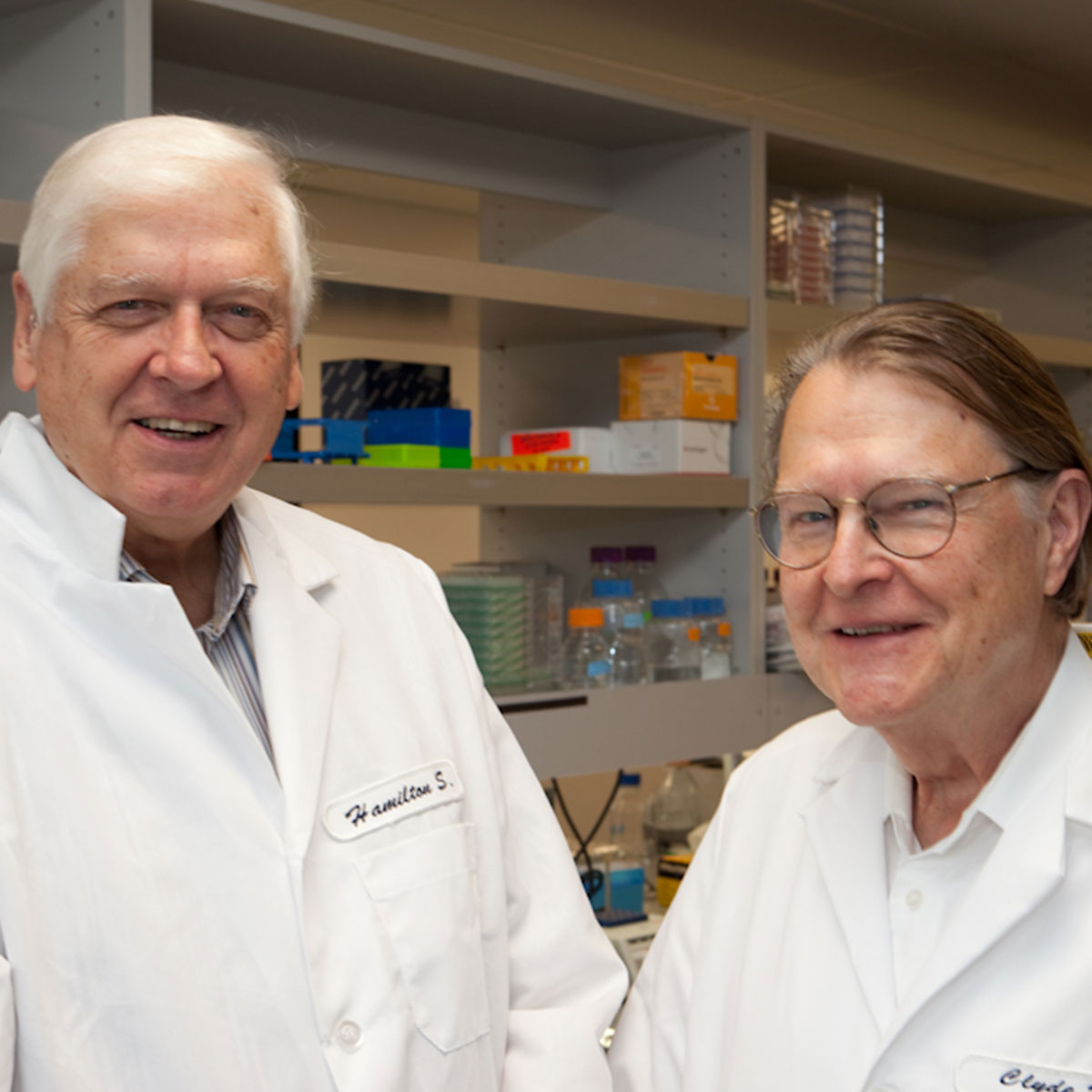
Scientist Spotlight: Hamilton O. Smith and Clyde A. Hutchison III
Two of the superstars of science at the helm of the effort to make a synthetic cell (a cell with a completely man-made set of genetic...
Share:

